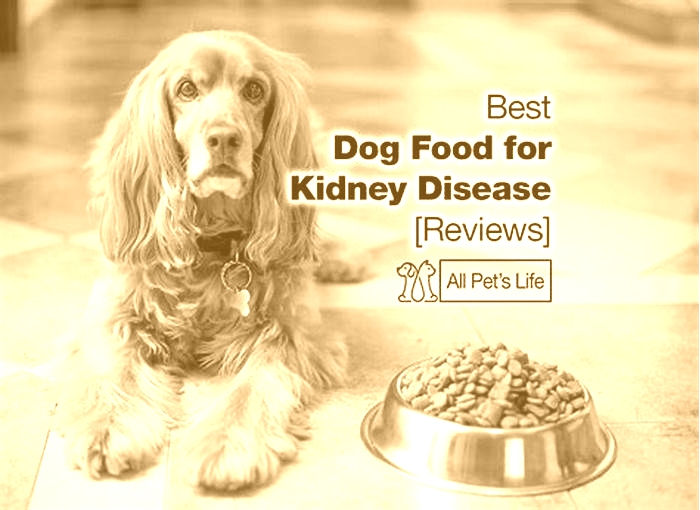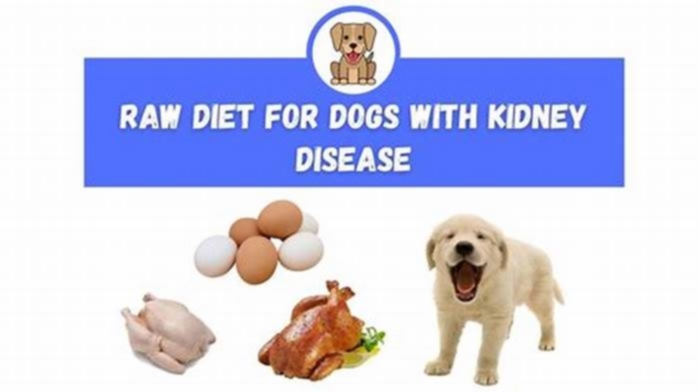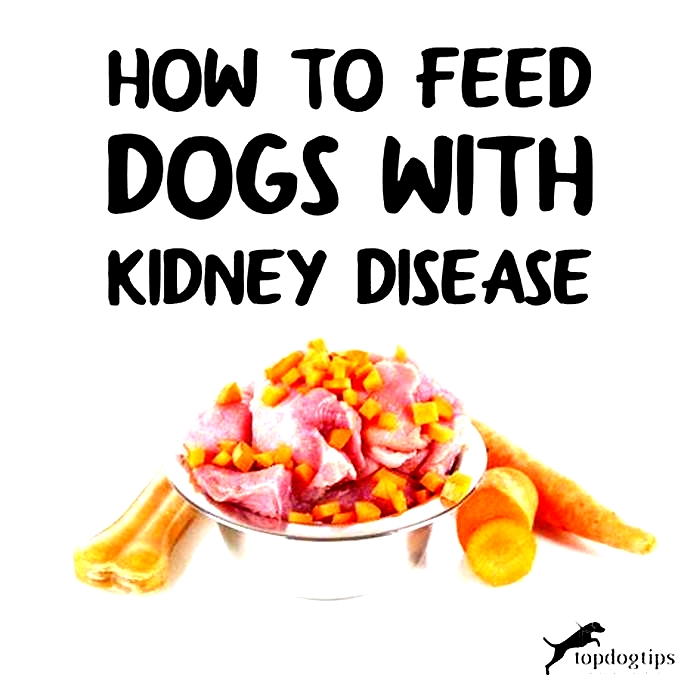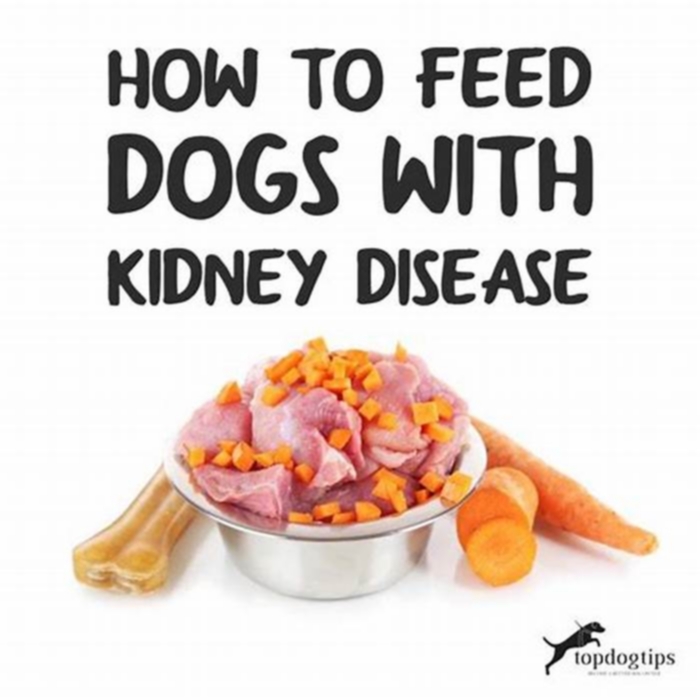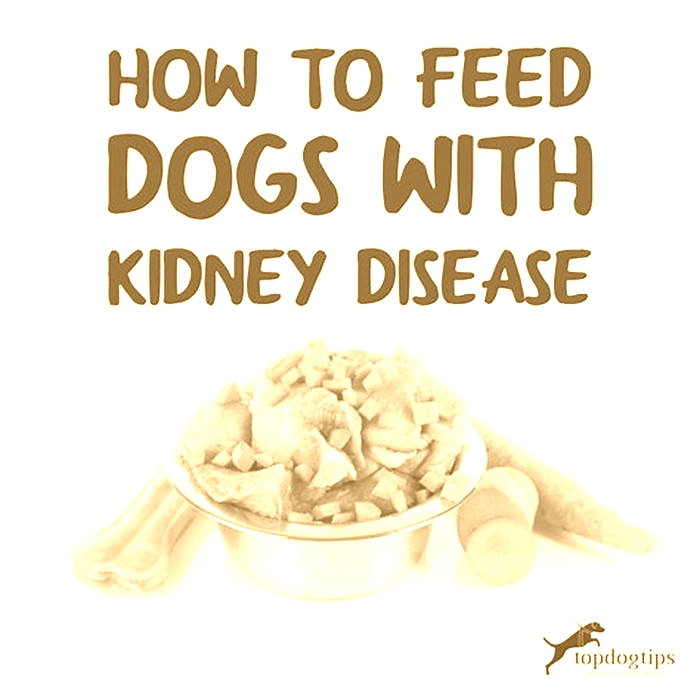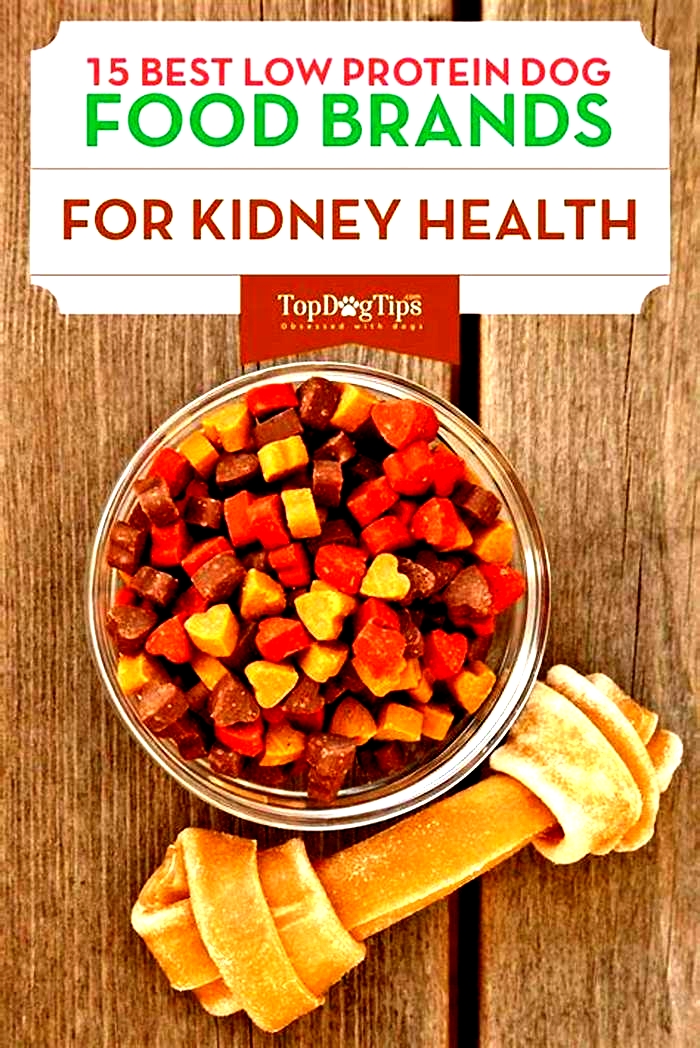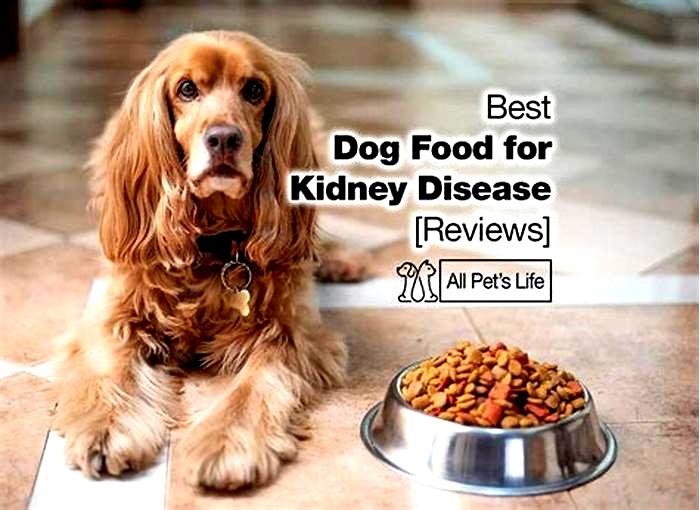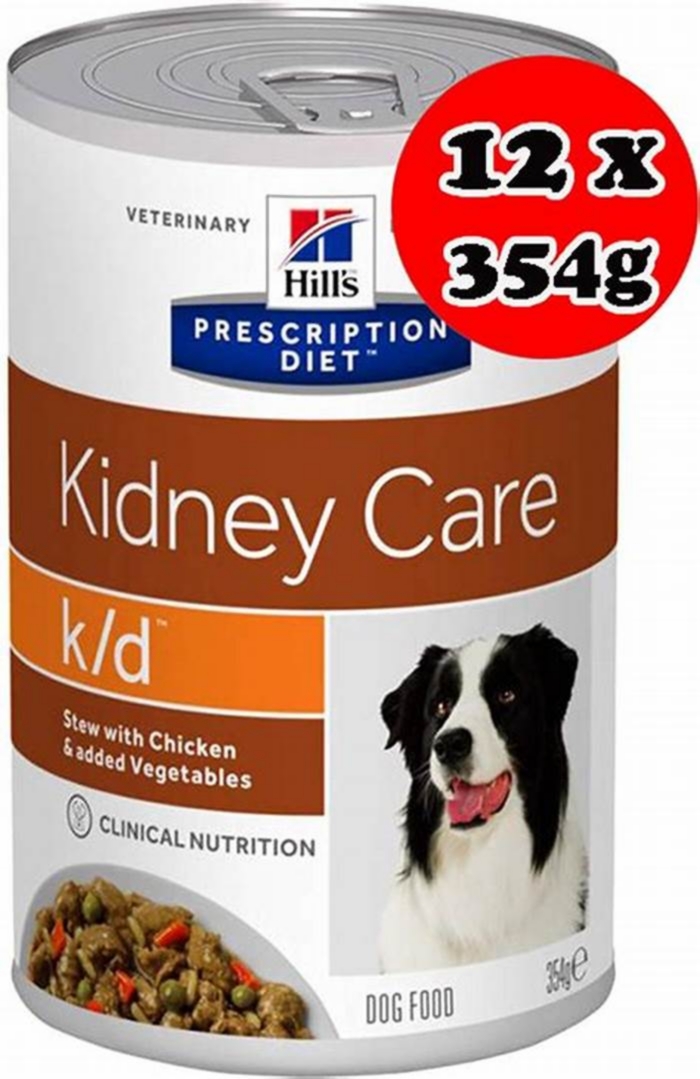can raw diet cause kidney problems in dogs
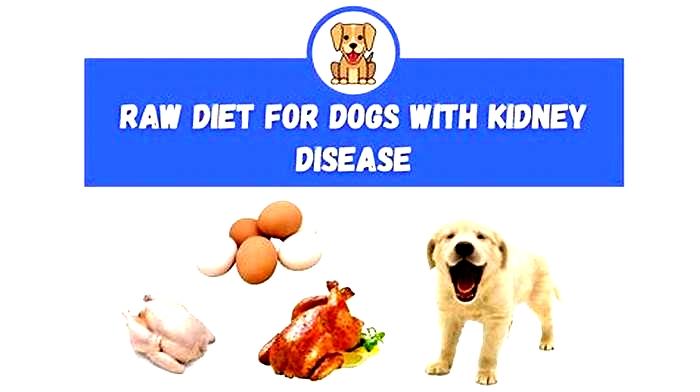
Raw Diet for Dogs With Kidney Disease
Getting the news that your dog has kidney disease can be shocking and frightening. After all, most kidney diseases in dogs are chronic and cannot be cured. However, there is no need to panic. While it depends on the progression of the disease, most dogs can still live a long and healthy life after being diagnosed. One of the most important components of treating a dog with kidney disease is monitoring their diet.
What to feed a dog with kidney disease?
When it comes to the diet of a dog with kidney disease, the most important element is avoiding certain nutrients and minerals. Below is a list of what you should not feed your dog with kidney disease:
Wheat: This can be very hard and painful for a dog to digest if they have kidney disease.
Phosphorus: It is very important that you avoid foods that are high in phosphorus. This is because a dog with kidney disease must not have a lot of phosphorus in their blood, as this can damage the dogs kidney.
Sodium: Dogs with kidney disease have a very hard time staying hydrated. A diet with a lot of sodium makes it even harder for the dog to stay hydrated.If your dog consumes too much sodium, it can raise their blood pressure and make it even harder for the kidney to function.
Protein: While dogs still need protein in their diet, you should not feed them anything that has a protein content greater than 20%.
Soy: It is also very difficult for a dog with kidney disease to absorb food that is high in soy.
Now you are probably wondering what you should feed your dog. Read below for the best food to feed your dog with kidney disease.
Omega-3 fatty acids: This is a great supplement to feed your dog. It reduces the hypertension in the kidney, and also decreases inflammation.
Food with high water content: It is very beneficial to feed your dog a diet that has a water content. This is because water helps your dogs kidney remove waste from the blood.
Raw food: Yep, raw food is a great option for dogs with kidney disease.
Raw diet for dogs with kidney disease
A raw diet for dogs with kidney disease is very beneficial because raw food typically has high quality protein. High quality protein can help your dogs kidney filter out toxins that are in their body. If you want to give your dog a raw diet in the form of meat, I recommend chicken or turkey. This is because bost of these meats are a lot easier to digest.
It has also been proven that eggs are a great option for dogs with kidney disease. Studies have shown that eggs promote hyperchloremic metabolic acidosis.
Other Options
Below are some good choices of dog food you can feed your dog with kidney disease. All of them can be bought through Amazon.
Hills Kidney Care Formula


This is probably the best option in terms of food for a dog with kidney disease. It has very low phosphorous and sodium content. It also contains chondroitin sulfate and omega-3 fatty acids, both of which help your dogs kidney function.
Raw Diet Linked To Kidney Problems In Dogs

Feeding your furry friend a raw diet has become an increasingly popular choice among dog owners. While it boasts of many health benefits, one question that often arises is whether a raw diet can cause kidney problems in dogs. As responsible pet owners, we want to ensure that our pets are eating a well-balanced and nutritionally sound diet, but is this type of diet putting their kidneys at risk? This controversial topic has led to much debate among veterinarians and pet owners alike, so let's explore the facts and myths surrounding raw feeding and its potential impact on our canine companions' kidneys.
| Characteristics | Values |
|---|---|
| Protein | High levels of protein in raw diets can increase the workload on the kidneys, which may lead to kidney damage over time. |
| Phosphorus | Raw diets are usually high in phosphorus, which can be harmful to dogs with kidney problems. |
| Calcium | Raw diets may contain too much calcium, which can also be harmful to dogs with kidney problems. |
| Salt | Excessive salt intake can contribute to high blood pressure, which can damage the kidneys over time. Some raw diets may contain high levels of salt. |
| Dehydration | Raw diets are low in water content, which can contribute to dehydration and put additional stress on kidneys. |
| Quality Control | There is less regulation and oversight in the manufacturing of raw diets, which increases the risk of contamination and foodborne illnesses that can damage the kidneys. |
| Personalization | Raw diets may not be formulated to meet a specific dogs nutritional needs and can contribute to kidney problems over time, especially if fed long-term. |

Is it true that a raw diet can cause kidney problems in dogs?
As pet owners, we all want to give our furry companions the best, and that includes their diet. One of the most popular diets for dogs is a raw diet, which consists of uncooked meat, organs, and bones. But is it true that a raw diet can cause kidney problems in dogs?
First, lets break down what the kidneys do. The kidneys are responsible for filtering waste products from the blood, balancing electrolytes, and maintaining fluid balance in the body. When the kidneys are not functioning properly, waste products, such as urea and creatinine, can build up in the body, causing a variety of health issues.
Now, lets look at the potential risks of a raw diet. One concern is that the uncooked meat may contain harmful bacteria, such as E. coli and Salmonella, which can cause food poisoning in both dogs and humans. Another concern is that a raw diet may not provide all the necessary nutrients, such as calcium and vitamin D, that dogs need to maintain good health.
However, there is currently no scientific evidence to suggest that a raw diet causes kidney problems in dogs. In fact, a study published in the Journal of the American Veterinary Medical Association found no significant difference in kidney function between dogs on a raw diet and those on a commercial diet.
That being said, it is important to remember that every dog is different and may have different dietary needs. If you are considering a raw diet for your dog, it is recommended that you consult with a veterinarian or a board-certified veterinary nutritionist to ensure that your dogs nutritional needs are being met.
In addition, if you do decide to feed your dog a raw diet, there are some important steps you should take to minimize the risk of bacterial contamination. These include:
- Using safe handling practices when preparing and serving raw meat, such as washing your hands and utensils thoroughly with soap and hot water before and after handling.
- Using only high-quality raw meat from reputable sources.
- Keeping raw meat frozen until ready to use, and thawing in the refrigerator, not on the counter.
- Storing leftover meat in a covered container in the refrigerator for no more than three days.
- Monitoring your dog for any signs of illness, such as diarrhea or vomiting, and contacting your veterinarian if you notice anything out of the ordinary.
In conclusion, while there is no scientific evidence to suggest that a raw diet causes kidney problems in dogs, it is important to carefully consider the potential risks and to consult with a veterinarian or veterinary nutritionist before making any changes to your dogs diet. By taking the appropriate precautions, you can help ensure that your dog stays happy and healthy on a raw diet.

How does a raw diet affect a dog's kidneys?
A raw diet, also called a "BARF" (biologically appropriate raw food) diet, is becoming increasingly popular among pet owners who want to provide their dogs with a more natural diet. However, there are concerns about how this type of diet affects the kidneys of dogs.
The kidneys play an essential role in filtering the blood and removing waste products from the body. When it comes to a raw diet, the concern is that it may put extra strain on the kidneys by making them work harder to eliminate excess protein and other waste products.
On the flip side, proponents of the raw diet argue that dogs are carnivores and have evolved to eat raw meat. They believe that this diet provides optimal nutrition for dogs and reduces the risk of chronic diseases such as obesity, diabetes, and cancer.
So what does the science say about the impact of a raw diet on a dog's kidneys?
A study conducted by the University of Helsinki found that dogs fed a raw meat-based diet had significantly higher levels of creatinine (a waste product) in their urine compared to dogs fed a commercial dry kibble. High levels of creatinine can be an indicator of kidney disease, but it's important to note that this study did not find any evidence of kidney damage in the dogs fed the raw diet.
Another study published in the Journal of the American Veterinary Association found that dogs fed a raw diet had a higher risk of developing urinary tract infections compared to dogs fed a commercial diet. This is because a raw diet is often high in protein, which can increase the concentration of certain minerals in the urine and promote the growth of bacteria.
While these studies suggest that there may be some risks associated with a raw diet, it's important to remember that every dog is different. Some dogs may thrive on a raw diet, while others may not be able to tolerate it.
If you're considering switching your dog to a raw diet, it's essential to do so gradually and under the guidance of a veterinarian. Your vet can help you determine if a raw diet is appropriate for your dog and monitor their kidney function to ensure that they remain healthy.
In conclusion, a raw diet may put extra strain on a dog's kidneys, but the evidence for this is still inconclusive. Pet owners should weigh the benefits and risks of a raw diet and make an informed decision based on their dog's individual needs and health status.

Can certain types of raw foods be more harmful to a dog's kidneys than others?
As pet owners, we all want to ensure that our furry friends stay healthy and happy. One aspect of this is ensuring that their diet is appropriate and nutritionally balanced. However, if your dog is suffering from kidney issues, you may be wondering whether there are certain types of raw foods that can be harmful to their kidneys.
The short answer is yes - some types of raw foods can be more harmful to a dog's kidneys than others. Let's explore this in more detail.
Firstly, it's important to note that feeding your dog a raw food diet has become increasingly popular in recent years, with many pet owners advocating for its benefits. However, if your dog has pre-existing kidney issues or is susceptible to them, a raw food diet may not be the best choice.
During the digestion of protein, the body produces waste products such as urea and creatinine. These waste products are filtered out of the blood by the kidneys and excreted through urine. If the kidneys are not functioning as they should, these waste products can build up and cause further damage.
Certain types of raw foods are high in protein, which can put additional strain on the kidneys. For example, organ meats such as liver and kidneys are rich in protein and should be fed in moderation to dogs with kidney issues. Similarly, fatty meats such as beef or lamb can be difficult for the kidneys to process and should also be limited.
On the other hand, some types of raw foods can actually be beneficial for dogs with kidney issues. For example, lean meats such as chicken or turkey can provide dogs with high-quality protein without putting too much strain on the kidneys. Vegetables such as broccoli or green beans can also be a good addition to a dog's diet, as they provide essential nutrients without the high protein content.
It's important to note that every dog is unique and there is no one-size-fits-all solution when it comes to feeding a dog with kidney issues. If you are considering a raw food diet for your dog, it's important to consult with your veterinarian first to ensure that it is appropriate for your dog's individual needs.
In summary, certain types of raw foods can be more harmful to a dog's kidneys than others. While it's important to provide your dog with a balanced and nutritious diet, it's crucial to consider their individual needs and any pre-existing health issues. By working with your veterinarian and being mindful of what you are feeding your dog, you can help ensure that they stay happy and healthy for years to come.

Are there any steps that can be taken to prevent kidney problems in dogs that are on a raw diet?
When it comes to feeding dogs a raw diet, it is important to take all necessary precautions to ensure their health and well-being. This includes taking steps to prevent kidney problems, which can be a common issue in dogs that are on a raw diet. In this article, we will discuss some of the steps that can be taken to prevent kidney problems in dogs that are on a raw diet.
The first step in preventing kidney problems in dogs that are on a raw diet is to ensure that the diet is balanced and complete. A balanced and complete raw diet should include all the necessary nutrients, vitamins, and minerals that a dog needs to maintain good health. This will help prevent any deficiencies that can lead to kidney problems, such as a lack of calcium or phosphorus.
Another important step in preventing kidney problems in dogs on a raw diet is to provide plenty of water. Dogs on a raw diet tend to drink less water than dogs on a dry or canned food diet, so it is important to make sure that they have access to fresh, clean water at all times. This will help prevent dehydration, which can lead to kidney problems.
It is also important to monitor the dog's urine output and color. Dogs on a raw diet should have clear, light-colored urine. If the urine is dark or cloudy, it may be a sign of kidney problems. If you notice any changes in your dog's urine, it is important to consult your veterinarian.
To prevent kidney problems in dogs on a raw diet, it is also important to feed them high-quality protein sources. Good sources of protein include muscle meat, organ meat, and eggs. These protein sources should be fed in appropriate amounts, as too much protein can put a strain on the kidneys.
In addition to these steps, it is important to keep your dog at a healthy weight and to provide regular exercise. This will help prevent obesity, which can lead to kidney problems. It will also help improve your dog's overall health and well-being.
In conclusion, there are several steps that can be taken to prevent kidney problems in dogs that are on a raw diet. These include feeding a balanced and complete diet, providing plenty of water, monitoring urine output and color, feeding high-quality protein sources, keeping your dog at a healthy weight, and providing regular exercise. By taking these steps, you can help ensure that your dog remains healthy and happy on a raw diet.

What are the warning signs to look out for to determine if a dog on a raw diet is experiencing kidney problems?
Feeding your dog a raw diet can have numerous benefits. A raw diet can provide your dog with essential nutrients and also lower the risk of developing certain medical conditions. However, there are potential risks associated with a raw diet for dogs, and one of these is kidney problems. It is important to be aware of the warning signs of kidney problems in dogs on a raw diet so that you can take steps to prevent and manage them.
First, it is essential to understand that a raw diet can be high in protein, which can put a strain on the kidneys. This is especially true if your dog has an underlying kidney condition, as a high-protein diet can make the condition worse. The kidneys have to work harder to process excess protein, which can cause damage to these vital organs over time.
One of the most significant warning signs of kidney problems in dogs is increased thirst and urination. If your dog is urinating frequently and drinking more water than usual, it could be a sign that their kidneys are not functioning correctly. You should monitor your dog's water intake carefully and make sure they always have access to clean, fresh water.
Another warning sign of kidney problems is lethargy and loss of appetite. If your dog seems unusually tired or is not interested in their food, it could be a sign that their kidneys are not functioning correctly. Kidney problems can also cause weight loss in dogs, which should be a cause for concern.
In some cases, dogs with kidney problems may also suffer from vomiting and diarrhea. This is because waste products build up in the body when the kidneys are not working correctly, leading to digestive issues. If your dog is experiencing these symptoms, you should take them to the vet immediately.
There are steps you can take to reduce the risk of kidney problems in dogs on a raw diet. First, ensure that your dog's diet is balanced and provides all the essential nutrients they need. If you are unsure about the nutritional content of your dog's diet, consult a veterinarian or a qualified nutritionist.
It is also crucial to monitor your dog's protein intake, especially if they have an underlying kidney condition. Dogs with kidney problems may need to follow a low-protein diet to manage their condition.
In conclusion, it is vital to be aware of the warning signs that a dog on a raw diet might be experiencing kidney problems. Increased thirst and urination, lethargy, loss of appetite, vomiting, and diarrhea are all potential warning signs. If you notice any of these symptoms, you should take your dog to the vet immediately. By following a balanced diet and monitoring your dog's protein intake, you can reduce the risk of kidney problems in dogs on a raw diet.
Frequently asked questions
Yes, feeding raw meat diets to dogs can increase the risk of kidney disease and failure.
Raw diets typically have high levels of phosphorus, which can lead to kidney problems in dogs over time.
You can reduce the risk of kidney problems by using a low-phosphorus raw diet or adding a phosphorus binder to adjust the ratio.
Yes, there are still many factors that can lead to kidney disease in dogs. Therefore, it's essential to monitor your dog's overall health and limit other risk factors.
Common signs of kidney problems include increased thirst and urination, vomiting, loss of appetite, and weight loss. It's important to visit a veterinarian for a diagnosis if you suspect your dog may have kidney issues.

